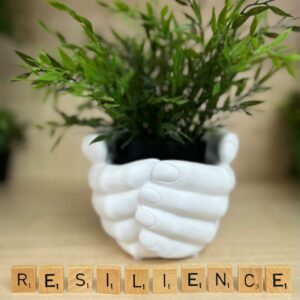 The word resilience seems to be on everyone’s lips at the moment. We are told to be resilient at work, build resilient businesses, demonstrate resilience at home and grow resilient kids! There is such a call for resilience, but why is it that some seem to handle difficult situations better than others?
The word resilience seems to be on everyone’s lips at the moment. We are told to be resilient at work, build resilient businesses, demonstrate resilience at home and grow resilient kids! There is such a call for resilience, but why is it that some seem to handle difficult situations better than others?
Recently, we were lucky enough to attend the HRD conference in Auckland. We were blown away by the opening speaker Dr Lucy Hone, who specialises in understanding resilience and has carried out significant research in this space. We took so much away from her talk – so thought we’d share this with you!
Resilience can be learned
She shared that resilience can be learned, it is not just a gift that some people have, and some don’t. This is great to hear and take onboard if you’re feeling like it’s all a bit of a mystery.
She also explained the 3 traits of a resilient person, which challenged our thinking and gave us some tangible action points.
Resilient people:
- understand that terrible things can happen to anyone. Suffering is part of life, and it does not discriminate. They don’t focus on the ‘why me’.
- choose where they place their attention. They understand you don’t want to lose what you have now for what you have lost. They take on a mindset of gratitude.
- ask themselves, “is what I am doing helping or harming me?” For example, is constantly scrolling through Instagram at night helping or harming me? Maybe I should head to bed for a good night’s sleep.
If you’re keen to watch Dr Hone speak more about her lived experience of resilience, here’s a link to her TED Talk. We think it’s definitely worth watching.
Making connections
Dr Hone’s talk then moved on to wellness and how we build this both personally and in the workplace. When we prioritise our own wellbeing, we’re in a better place to be resilient. She got a laugh from the conference attendees when she shared her thoughts that in the workplace, wellness has to be more than the “three F’s” – Fitness, Fruit and Flu jabs!
One of the key wellness activities she described was the prioritisation of high quality connections. This is in both the workplace and in our personal lives.
This made Kelly reflect on a Dr Chatterjee podcast she’d been listening to, in which he interviewed two Stanford Professors, David Bradford and Carole Robin. They discussed how and why to build exceptional relationships. The Stanford course they run is wildly popular. They receive feedback from their students that their course helped people get promotions, saved marriages, repaired broken relationships and changed their lives.

